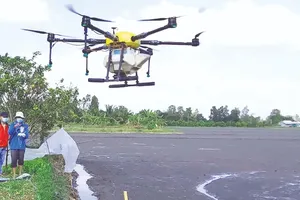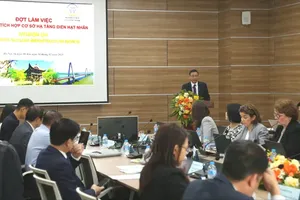
In the meeting, Deputy Resident Representative of UNDP in Vietnam Patrick Haverman praised the efforts of the Vietnamese Government in offering online public services for its citizens.
However, despite the Covid-19 pandemic leading to more use of online service, the number of people using these services is not high enough. Statistics from the survey for Vietnam Provincial Governance and Public Administration Performance Index (PAPI) in the two years of 2020 and 2021 show that only 3.5 percent of the surveyed experienced the national public service e-portal.
To be successful in digital transformation, personal data protection according to the UN’s standards is critical, including such features as fair and lawful personal data processing; clarification of personal data collecting and processing; necessary personal data collecting only; safe storage of personal data; transparency and accountability ensuring.
However, UNDP survey shows that most localities have not fully observed legal regulations on private data protection. For instance, only 1/63 public service e-portals and 3/63 provincial e-portals display contact information of the unit in charge of personal data protection. Only 9 out of 130 emails inquiring those e-portals about the matter are properly responded.
One of the most concerning results of the survey is the misunderstanding and misclassification of the legal responsibilities among managers of personal data, in particular among the ‘governing agency’ (the People’s Committee of cities, provinces), ‘operation agency’ (corresponding departments of Information & Communications), and platform developers. This might lead to no ground to attribute responsibility to when an incident happens, which is extremely dangerous.
























